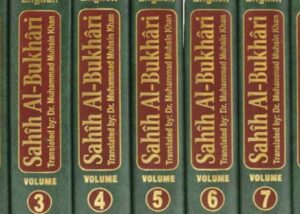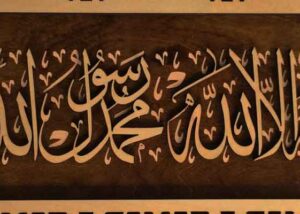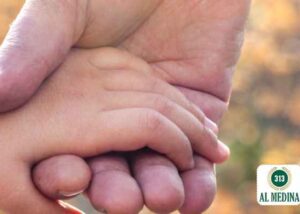Are there any Hadith establishing whether people be called by their father’s name or mother’s name on the Day of Judgement?
Quran
Hadith
Islamic Text
It is established that people will be called by their father’s name.
There are numerous Hadith that point to the fact that people will be called upon by their name and their father’s name, on the day of judgement.
ابْنِ عُمَرَ رَضِيَ اللَّهُ عَنْهُمَا، عَنِ النَّبِيِّ صَلَّى اللهُ عَلَيْهِ وَسَلَّمَ قَالَ: إِنَّ الغَادِرَ يُرْفَعُ لَهُ لِوَاءٌ يَوْمَ القِيَامَةِ، يُقَالُ: هَذِهِ غَدْرَةُ فُلاَنِ بْنِ فُلاَنٍ
“Ibn Umar narrated that the Prophet ﷺ said, ‘The treacherous person will have a flag set up for him on the day of resurrection, and an announcement will be made that this is the treachery of so and so, the son of so and so.’” – Sahih al-Bukhari, 6177
In this Sahih Hadith the wording is بْنِ فُلاَنٍ (son of so and so) which is masculine not بْنَ فُلَانَةَ which is feminine. This proves that people will be called upon by their father’s name and not mother’s name on the day of Judgement.
There are also a number of weak narrations that support this fact too, see Ahmad (11345) and Abu Dawood (4948).
There is a weak Hadith that mentions being called by one’s name and mother’s name, however, since it is weak, it cannot oppose a Sahih Hadith. Also, the Hadith mentions this regarding the grave (Barzakh) and not the day of Judgement, so even if it were Sahih, it would not contradict the Hadith above.
حَدَّثَنَا أَبُو عَقِيلٍ أَنَسُ بْنُ سَلْمٍ الْخَوْلَانِيُّ، ثنا مُحَمَّدُ بْنُ إِبْرَاهِيمَ بْنِ الْعَلَاءِ الْحِمْصِيُّ، ثنا إِسْمَاعِيلُ بْنُ عَيَّاشٍ، ثنا عَبْدُ اللهِ بْنُ مُحَمَّدٍ الْقُرَشِيُّ، عَنْ يَحْيَى بْنِ أَبِي كَثِيرٍ، عَنْ سَعِيدِ بْنِ عَبْدِ اللهِ الْأَوْدِيِّ، قَالَ: شَهِدْتُ أَبَا أُمَامَةَ وَهُوَ فِي النَّزْعِ، فَقَالَ: إِذَا أَنَا مُتُّ، فَاصْنَعُوا بِي كَمَا أَمَرَنَا رَسُولُ اللهِ صَلَّى اللهُ عَلَيْهِ وَسَلَّمَ أَنْ نصْنَعَ بِمَوْتَانَا، أَمَرَنَا رَسُولُ اللهِ صَلَّى اللهُ عَلَيْهِ وَسَلَّمَ فَقَالَ: إِذَا مَاتَ أَحَدٌ مِنْ إِخْوَانِكُمْ، فَسَوَّيْتُمِ التُّرَابَ عَلَى قَبْرِهِ، فَلْيَقُمْ أَحَدُكُمْ عَلَى رَأْسِ قَبْرِهِ، ثُمَّ لِيَقُلْ: يَا فُلَانَ بْنَ فُلَانَةَ، فَإِنَّهُ يَسْمَعُهُ وَلَا يُجِيبُ، ثُمَّ يَقُولُ: يَا فُلَانَ بْنَ فُلَانَةَ، فَإِنَّهُ يَسْتَوِي قَاعِدًا، ثُمَّ يَقُولُ: يَا فُلَانَ بْنَ فُلَانَةَ، فَإِنَّهُ يَقُولُ: أَرْشِدْنَا رَحِمَكَ اللهُ، وَلَكِنْ لَا تَشْعُرُونَ. فَلْيَقُلْ: اذْكُرْ مَا خَرَجْتَ عَلَيْهِ مِنَ الدُّنْيَا شَهَادَةَ أَنْ لَا إِلَهَ إِلَّا اللهُ، وَأَنَّ مُحَمَّدًا عَبْدُهُ وَرَسُولُهُ، وَأَنَّكَ رَضِيتَ بِاللهِ رَبًّا، وَبِالْإِسْلَامِ دِينًا، وَبِمُحَمَّدٍ نَبِيًّا، وَبِالْقُرْآنِ إِمَامًا، فَإِنَّ مُنْكَرًا وَنَكِيرًا يَأْخُذُ وَاحِدٌ مِنْهُمْا بِيَدِ صَاحِبِهِ وَيَقُولُ: انْطَلِقْ بِنَا مَا نَقْعُدُ عِنْدَ مَنْ قَدْ لُقِّنَ حُجَّتَهُ، فَيَكُونُ اللهُ حَجِيجَهُ دُونَهُمَا فَقَالَ رَجُلٌ: يَا رَسُولَ اللهِ، فَإِنْ لَمْ يَعْرِفْ أُمَّهُ؟ قَالَ: «فَيَنْسُبُهُ إِلَى حَوَّاءَ، يَا فُلَانَ بْنَ حَوَّاءَ
“Saeed bin Abdillah al-Awdi said, I witnessed Abu Amaamah when he was close to death. He said, If I die then do with me what the Messenger of Allah ﷺ commanded us to do with our dead. The Messenger of Allah ﷺ commanded us saying, ‘If one of your brothers dies and you have levelled off the soil of his grave, then let one of you stand at the head of his grave and say, O so and so, the son of so and so, for indeed he hears but cannot respond. Then say again, O so and so, the son of so and so, for indeed he will sit up straight. Then say again, O so and so, the son of so and so, he will say, guide me may Allah (Most High) have mercy upon you, but you will not hear it. Say, remember what you left the Dunya with, bearing witness that there is no God except Allah (Most High), and Muhammad (ﷺ) is his slave and messenger, and you are pleased with Allah (Most High) as your Lord, and Islam as your religion, and Muhammad (ﷺ) as your Prophet, and the Quran as your Imam (leader). For indeed one from Munkar and Nakeer will take the hand of the other and say, lets go, we should not sit with someone who has been dictated his answers (proof). And Allah (Most High) will protect him from them (Munkar and Nakeer). A man said, O Messenger of Allah (ﷺ), what if he doesn’t know his mother’s name. He (ﷺ) said, ‘let him link him to Hawaa, and say O so and so son of Hawaa.’”- Tabarani, al-Mojam al-Kabeer, 7979 [Weak]
Imam al-Iraqi said in his Takhreej of Ihya that the chain is weak:
أخرجه الطَّبَرَانِيّ إِسْنَاد ضَعِيف المغني عن حمل الأسفار في الأسفار
A number of other scholars agreed that the Hadith from Tabarani is weak, amongst them Imam Zakariyah al-Ansari, who quoted Imam al-Nawawi in his Asnaa al-Matalib saying it is weak.
قال النَّوَوِيُّ وهو ضَعِيفٌ (أسنى المطالب في شرح روض الطالب
Although this Hadith cannot be used to say people will be called by their mother’s names on the day of Judgement, it could be used to support an argument for that being the case in Barzakh. However, since it is a weak Hadith scholars are not obliged to accept it.
– Answered by Shaykh Noorud-deen (05.01.2021)
See also:






